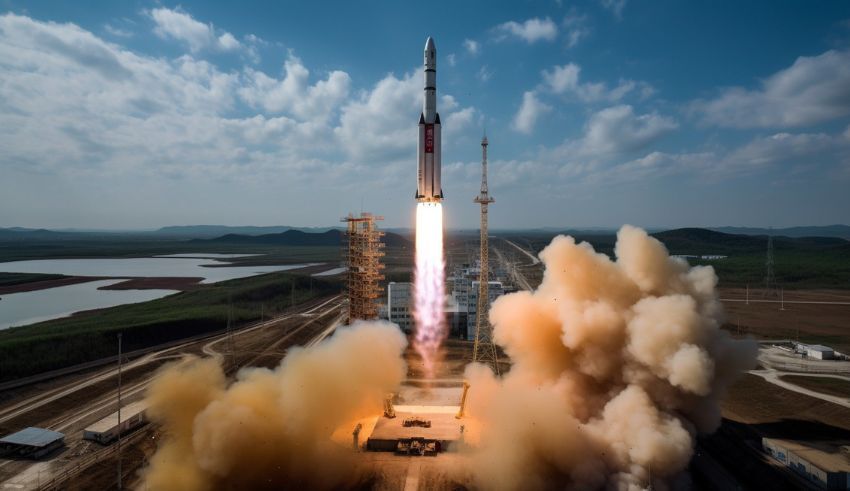
In a pivotal move, South Korea declared a partial freeze on the 2018 inter-Korean agreement following North Korea’s assertion of a triumphant launch of a spy satellite. The North’s actions have sent tensions soaring, prompting Seoul to underscore its commitment to national security.
The declaration came in the wake of North Korea‘s announcement about placing its military reconnaissance satellite, named “Malligyong-1,” into orbit. While the North insists on its sovereign right to launch spy satellites, U.N. Security Council resolutions categorically prohibit such activities, deeming them a guise for testing long-range missile technology.
Heo Tae-keun, South Korea’s Deputy Minister of National Defense Policy, labeled the satellite launch a blatant violation of U.N. resolutions and a serious provocation jeopardizing national security. Heo outlined that the suspension of the inter-Korean agreement would allow for the resumption of aerial surveillance activities at the border.
End of Agreement
The 2018 agreement, born out of a fleeting era of reconciliation between the Koreas, established buffer and no-fly zones along the heavily fortified border. The deal mandated both countries to cease frontline aerial reconnaissance and live-firing exercises, facilitating the removal of some guard posts and landmines at border areas.
However, critics within South Korea contended that the agreement disproportionately favored North Korea, limiting the operation of superior aerial surveillance assets. The accord faced conservative censure for neglecting to address North Korea’s nuclear arsenal, resulting in its brief efficacy.
The recent move by South Korea signals a recalibration in its strategy, reflecting apprehensions about North Korea’s advancing missile technology and the establishment of a space-based surveillance system. The decision to suspend the agreement garnered approval at a Cabinet Council meeting, emphasizing the significance of a robust military alliance with the United States.
Keep Reading
Spy Satellite Allegations
South Korea’s commitment to swiftly and decisively penalize North Korea if it exploits the suspension as a pretext for further provocation underscores the gravity of the situation. The geopolitical dynamics in the region have been strained since the collapse of broader nuclear diplomacy between North Korea and the U.S. in 2019.
North Korea’s National Aerospace Technology Administration asserted that the “Malligyong-1” satellite would bolster the country’s preparedness against perceived threats. Despite North Korea’s insistence on a successful launch, independent verification is pending, with the Pentagon assessing the launch’s success.
Japan, a neighboring country, refrained from confirming the satellite’s entry into orbit. The global community, including the U.S., condemned North Korea’s actions, interpreting them as endeavors to advance missile technology.
South Korea’s response encompasses a pledge to restart aerial surveillance activities and potential robust countermeasures. The situation raises apprehensions about regional stability and the potential for further escalations, spotlighting the intricate geopolitical landscape on the Korean Peninsula.




